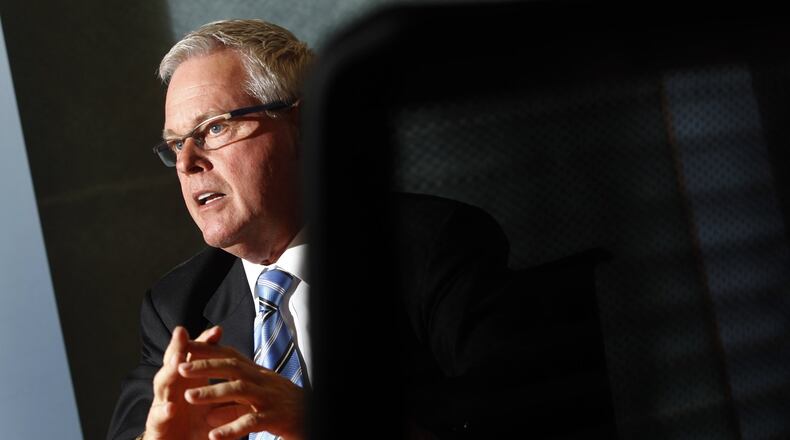“When you come in contact with poverty. When you come in contact with hopeless and despair and it comes and it touches you in a real and physical way, you are fundamentally changed,” McGrath said.
“When a small child comes up to a car and you’re sitting the back of the car and they tap on the window with a little, tiny stone. And they’re 5 years old themselves and they have a 3-year-old or 2-year-old sibling on their hip, begging for food. They’re fifthly dirty. Their eyes are literately black pools. You can see the fear of hopelessness of people,” he said. “Every time that I go back to those places. I keep saying to myself: How could you forget the depth of the despair?”
But McGrath said he believes “today, we’re at an unusual inflection point in time” because today we can record human rights violations.
“There is no more hiding it,” he said.
McGrath addressed the UD freshmen studying business as keynote speaker at the 10th annual Business as a Calling Symposium on Thursday night. He has made major donations to the university to spur faculty and student research of human rights and social justice issues.
He donated $100,000 to create the Peter McGrath Human Rights Fellows Program providing stipends for faculty members to conduct and publish research
He also made a donation that will help the university create a human rights center.
The Dallas resident, who earned an English literature degree in 1972, said progress has been made to wipe out poverty and address human rights violations, but there is still more to be done. About 27 million people are in slavery today, he said.
“We don’t live in a perfect world,” he said. “We need to be rewarding to those who try to support and direct improvement in human rights.”
About the Author
